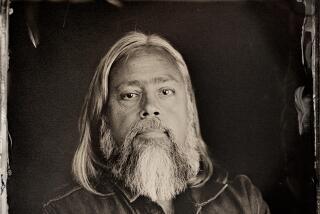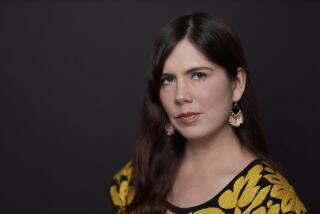An Outsider Recalls the Painful Memories of Childhood
- Share via
In the course of a long career in publishing, Ted Solotaroff has established himself as one of the eminent editors of our half-century. Whether at Bantam, Commentary or the New American Review, Solotaroff has garnered a reputation as an inspiration and a mensch. Now Solotaroff has joined many of his authors on the memoir parade with “Truth Comes in Blows,” and the result is both inspirational and menschlich.
On the face of it, Solotaroff’s memoir is a coming-to-terms story: the tale of a grown man, confronted with the death of his father, returning to memory to reexamine a childhood marked by abuse and miscomprehension. And, indeed, there was abuse. The son of Russian Jews, a self-made businessman with a struggling plate glass company in New Jersey, Ben Solotaroff, on many occasions, tore at his distracted wife and beat his eldest son. A man who had to leave school for work, Ben envied his son Ted’s academic achievement and adolescent arrogance, which eventually led to a rupture that only partially healed at the end of his life.
The abuse is hardly of the Frank McCourt or Kathryn Harrison variety. There are none of the near-fatal encounters that Tobias Wolff experienced on a regular basis with his stepfather. Solotaroff has a subtler point to make: “The blows you don’t get over are not necessarily the most severe ones; they’re the ones that land in just the place where you have already taken the most punishment, whose pain is too familiar to confront and remedy.” The Solotaroffs were us; they were the Jews next door.
And it is Solotaroff’s portrait of that certain era, a blue-collar boyhood cradled by the Depression and the War and defined willy-nilly by his Jewishness, that is the wonderful center of the book. Working at the shop after school, discovering Sinclair Lewis, Jewish farms and Gentile country clubs, high school fraternities and varsity basketball games, the discovery of Marxism and a young girl’s breast, the longing to be an altar boy, to confess, to be one of the guys. As a Jewish boy growing up in an age of Gentile heroes, from sports idols like Lou Gehrig to his Irish shipmates in the Navy, Solotaroff describes the painful, impossible desire to be part of the crowd, a pain that lies at the core of the adolescent, the artist and the modern American Jew.
“Truth Comes in Blows” doesn’t have the fauvist brilliance of Roth’s memoir of his own father but a more muted and, therefore, more recognizable reexamination of a childhood, the paintbrush replaced by the red pencil. We are left, not with a Portrait of the Artist, but with a Portrait of the Editor as a Young Man--and that perhaps is the portrait most of us see hanging on our own bathroom mirrors.
More to Read
Sign up for our Book Club newsletter
Get the latest news, events and more from the Los Angeles Times Book Club, and help us get L.A. reading and talking.
You may occasionally receive promotional content from the Los Angeles Times.







